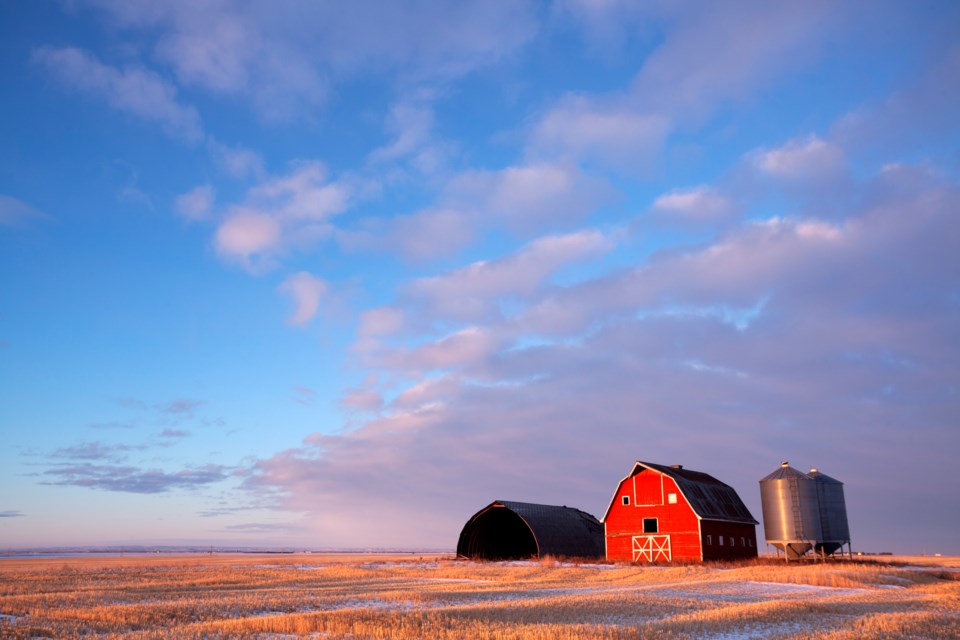REGINA - Harvest is virtually complete in Saskatchewan with 98 per cent of the crop in the bin, according to the the final Crop Report for the 2023 growing season. Producers were resilient this growing season. The warm, dry conditions led to an early harvest for many and there were some concerns related to water quality and feed access for livestock.
Once harvest began, producers in some areas were pleased to see yields better than expected. In many cases, harvest progressed smoothly with little interruption. Now that harvest is complete, producers are hoping for rain to replenish soil moisture for next year.
Crop yields varied throughout the province, depending heavily on the amount of moisture received. Yields in the southwest and west-central regions were below average due to sustained dry conditions. Some reported yields were better than expected, but overall, the majority of crop yielded below the 10-year average. Winter wheat and hard-red spring wheat were the only crops above the 10-year averages. The largest impact on yields this year was drought, heat stress, gophers and grasshoppers.
Average yields in the province are being estimated for all crops. Hard-red spring wheat is estimated to yield 43 bushels per acre, durum 24 bushels per acre, oats 82 bushels per acre, barley 56 bushels per acre and fall rye 36 bushels per acre. Flax is estimated to yield 18 bushels per acre, canola 33 bushels per acre and soybeans 17 bushels per acre. Field peas are estimated to yield 31 bushels per acre. Mustard is estimated to yield 636 lbs. per acre, lentils 1,101 lbs per acre, canary seed 982 lbs. per acre and chickpeas 858 lbs. per acre. All crops are estimated to be above the 10-year average for quality and to be in the top two categories for all crops.
Provincially, seeded acreage for fall cereals is expected to be relatively unchanged, with a slight reduction of one per cent for both fall rye and winter wheat. The southwest is expected to increase fall rye by 15 per cent and winter wheat by seven per cent. The west-central region is also expected to increase their fall cereal acres, with winter wheat expected to increase 14 per cent and fall rye by three per cent.
Fall rains and heavy, wet snow are needed around the province as soil moisture continued to decline throughout the fall. Provincially, cropland topsoil moisture is 31 per cent adequate, 44 per cent short and 25 per cent very short. Hay and pastures are 27 per cent adequate for moisture, 43 per cent are short and 29 per cent are very short.
While producers were concerned about their winter feed supplies early in the growing season, many have secured feed from other parts of the province or neighbouring provinces and now have adequate supplies. Provincially, alfalfa yields are 1.22 tons per acre, brome/alfalfa is 1.19 tons per acre and greenfeed is 1.69 tons per acre. On irrigated land yields are higher, with alfalfa yielding 2.8 tons per acre and brome/alfalfa yielding 2.12 tons per acre. Sileage yields are provincially at 7.0 tons per acre. Producers are reporting the hay and feed they have been able to source is mainly of good quality.
While harvest is over for many, fall work is still underway for producers. Where there is enough moisture, producers are applying fall fertilizer for next year and harrowing harvested crops. Livestock producers are hauling water for animals to ensure they have a safe water source, hauling feed and bringing cattle home for the winter. Fall calving is occurring on some operations. Producers are planning for next year and hoping soil moisture improves to start next year’s growing season off well.
For any producers or their families experiencing stress, the Farm Stress Line is available support to toll free at 1‑800‑667‑4442.




